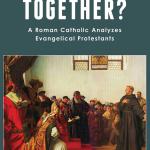The following weeks will bring numerous commentaries on the killing of Tyre Nichols. It is not my intent to address the legal fine points of this criminal act. Neither is it my aim to comment on the politics of policing, nor even on the racial aspects of the attack (although this last point is tangentially related to that which follows). My focus, instead, will be on two contrasting, philosophical responses to this terrible event. These differing responses are very telling about the bifurcated society in which we live. They exemplify two very different views of social reality. However, to demonstrate these two different anthropologies, we must do a bit of analysis.
Two Socio-Political Responses to Evil
The first response, by US Representative from New York, Alexandria Ocasio-Cortez, represents one view of the human condition. On her twitter feed, AOC writes:
The effort to separate the officers who murdered Tyre Nichols from the system of policing that produced them is palpable. Police killings in the US reached a record high in 2022. That has only been rewarded with more funding at the expense of schools, hospitals, housing, & more.
Alexandria Ocasio-Cortez, Twitter, Jan. 27 2023 [emphasis added]
The swift termination, arrest, and indictment of the officers involved in the Nichols incident comports with the outrageous nature of the conduct depicted in the videos released to the public. But for some, it won’t be enough that these actions met with universal outrage and both administrative and legal enforcement actions. “We need to show the world what lessons we can learn from this tragedy,” District Attorney Mulroy said during the press conference in which the charges were announced. But perhaps the lesson is simply this: policing is a human endeavor and is therefore subject to the shortcomings of the human condition, which means that some people, cops included, will sometimes act out of malevolence. For some police critics, this reality is unsatisfactory. Congresswoman Alexandria Ocasio-Cortez, for example, decried via Twitter “[t]he effort to separate the officers who murdered Tyre Nichols from the system of policing that produced them.” As such, tweeted the congresswoman from New York, “Charges alone aren’t justice. Change is.”
Raphael Mangual, “Brutal But Atypical,” [emphasis added]
Conflicting Confessions
There are many ways we could frame the problem of disunity in our nation. It might be a conflict between “the religious and the non-religious,” “patriots and revolutionaries,” between “racists and anti-racists,” or those who are “pro-life” versus those who are “pro-death.” All of these may, to some degree, have greater or lesser validity. However, at the most fundamental level, there is a conflict that runs deeper than all these potential explanations for the fragmentation of our culture. This more fundamental disagreement, subsequently, affects and informs these other areas of social conflict.
The disagreement revolves around the nature and source of immorality itself. It is a deep disagreement, one that divides people along psychological lines, so much so that those who fall into one category often can barely understand, or even tolerate, those that fall into the other. For the most part, it is also the factor that divides the country into two perennially warring political parties, the Democrats on the one side, and Republicans on the other. Or, put more ideologically, liberals on one hand, conservatives on the other.
This deep conflict is best represented by two of history’s greatest thinkers: one ancient and one modern; both of whom penned famous, autobiographical works called “Confessions.” The first “Confession” was written around 397-400 AD by Aurelius Augustine, known to many today as “Saint” Augustine. Augustine describes his basic premise about human nature via a personal story, an anecdote about stealing some pears from a garden:
It is certain, O Lord, that theft is punished by your law, the law that is written in men’s hearts and cannot be erased however sinful they are. For no thief can bear that another thief should steal from him, even if he is rich and the other is driven to it by want. Yet I was willing to steal, and steal I did, although I was not compelled by any lack, unless it were the lack of a sense of justice or a distaste for what was right and a greedy love of doing wrong. For of what I stole I already had plenty, and much better at that, and I had no wish to enjoy the things I coveted by stealing, but only to enjoy the theft itself and the sin. There was a pear-tree near our vineyard, loaded with fruit that was attractive neither to look at nor to taste. Late one night a band of ruffians, myself included, went off to shake down the fruit and carry it away, for we had continued our games out of doors until well after dark, as was our pernicious habit. We took away an enormous quantity of pears, not to eat them ourselves, but simply to throw them to the pigs. Perhaps we ate some of them, but our real pleasure consisted in doing something that was forbidden.
Excerpt From Confessions, Saint Augustine & R. S. Pine-Coffin
Augustine’s Confessions is one of the most influential books of all time. In this pericope, we readily discern Augustine’s view of whence human immorality comes, it comes from within the heart of each and every person. It is even, as Augustine goes on to say, the desire of every person to be immoral. From birth, we are not only capable of breaking the moral law, we are desirous to do so.
The second confession, itself a parody of Augustine’s biography, is that of the 17th century French social philosopher, Jean-Jaques Rousseau. Rousseau’s retelling of his own childhood experience provides the antithesis of Augustine’s recounting of the theft of the pears. For Rousseau, the youthful incident didn’t involve fruit, but vegetables.
In Book I of Rousseau’s Confessions, he tells the story of a man named Verrat. Verrat, being poor, desired to steal some vegetables each morning from his mother’s garden to sell them later in the day. However, the journeyman was not very “nimble,” and, thus, incapable of carrying out the task. Not possessing the physical ability to thieve the vegetables himself, Verrat compels the young Rousseau to do it for him. He does this through flattery, of which Rousseau admits “I could never resist the attacks of flattery.” And so Rousseau begins to steal. However, unlike Augustine, his assessment of his youthful thievery is quite different:
I executed my roguery with the greatest fidelity, seeking only to please my employer;
Rousseau, Confessions, 39
Rousseau is happy to break the law, understanding it as a way to rectify a bad, material situation (the poverty of the journeyman Verrat). Rousseau eventually goes on to embrace his newfound practice:
This practice taught me it was not so terrible to to thieve as I had imagined. I took care to make this discovery turn into some account, helping myself to everything within my reach that I conceived an inclination for. I was not absolutely ill-fed at my master’s, and temperance was only painful to me by comparing it with the luxury he enjoyed.
Confessions, 39
Here are two central features of Rousseau that starkly contrast with his ancient counterpart. First, he begins to understand the act of thievery as itself not inherently wrong. The feeling of guilt associated with it, is only relative to the socially constructed morality of the culture in which he lives. Second, his inability to practice the virtue of temperance is not a problem inherent in him. His intemperance, i.e., greed, only emerges in light of the discrepancy in material possessions that exists between him and his master.
Rousseau admits he was not “ill-fed,” meaning, he had sufficient food. But, when compared to the luxury of his master, he is pained to be temperate. His conclusion: were there no contrast between him and his master, the feeling of being intemperate would not exist. Thus, the way to prevent feeling vicious, is to eliminate any discrepancies between people or groups that might give occasion for vice.
This idea lays the foundation for the later Marx and all subsequent variations of Marxist thought. It is essentially the view that politicians like AOC express when they tweet about tragedies like that of Tyre Nichols or, more specifically, about the cause of his killing. When AOC indicates a problem with separating the individual officers from the system that produced them, she is parroting the Rousseaun view. In this case, the conflict exists not because of the inherent flaws in the hearts of those involved. The conflict between the Memphis officers and their victim exist in light of a discrepancy in power.
Rousseau’s conclusions about his thievery are, as such, diametrically opposed to Augustine’s, who reflecting on his incident of the pears says:
The evil in me was foul, but I loved it. I loved my own perdition and my own faults, not the things for which I committed wrong, but the wrong itself. My soul was vicious and broke away from your safe keeping to seek its own destruction, looking for no profit in disgrace but only for disgrace itself.
Augustine, Confessions [emphasis added]
For Augustine, and critics like Mangual, the source of social immorality is the self itself, the human nature that each individual human person shares. For Rousseau and AOC, the source of human problems is the system or network of human relations, not the people who fill those relational roles or positions. Rousseau even goes so far as to suggest that the punishment he received when caught thieving, only fueled his desire to further break the law:
A continual repetition of ill treatment rendered me callous; it seemed a kind of composition for my crimes, which authorised me to continue them, and, instead of looking back at the punishment, I looked forward to revenge. Being beaten like a slave, I judged I had the right to all the vices of one.
For Rousseau, and today’s Rousseauan-inspired politicians, even the system of punishment meant to remediate immoral and criminal activity is itself a contributing factor to further individual vice. While this ultimately is an incoherent idea, making society both the creator of criminals and subsequent punisher of the innocent, it is still a powerful idea that controls much of our contemporary “social imaginary” (to borrow Charles Taylor’s term).
Contrary and Complimentary Conclusions
Although Rousseau never explicitly mentions Augustine in his autobiography, some have wondered if he is not intentionally parodying the Church Father. However, there are similarities between Augustine’s and Rousseau’s conclusions, in spite of this one, very significant, contrast. Augustine, for example, does not deny that the social aspect of peer pressure contributed to doing what he later realized to be inherently evil:
It brought me no happiness, for what harvest did I reap from acts which now make me blush, particularly from that act of theft? I loved nothing in it except the thieving, though I cannot truly speak of that as a ‘thing’ that I could love, and I was only the more miserable because of it. And yet, as I recall my feelings at the time, I am quite sure that I would not have done it on my own. Was it then that I also enjoyed the company of those with whom I committed the crime? If this is so, there was something else I loved besides the act of theft; but I cannot call it ‘something else’, because companionship, like theft, is not a thing at all.
Augustine, Confessions [emphasis added]
It seems then that Rousseau, as well as AOC, are not entirely wrong in their analysis of the cause of social immorality, even if they have conflated two things: the inherent sinfulness of man, and the pressure of society upon him to instantiate the sinful dispositions natural to him. Nevertheless, there is a good chance that if only Officer Martin had been involved in pulling over Nichols, and no other members of the “SCORPION” unit were present, Nichols may still be alive today. However, this doesn’t mean that the potential for Nichols’ killing wasn’t present in each, individual member of the unit.
In his classic work on political and social ethics, Moral Man and Immoral Society, Reinhold Niebuhr summarizes this moral dynamic that exists between the individual and the group:
Men will never be wholly reasonable, and the proportion of reason to impulse becomes increasingly negative when we proceed from the life of individuals to that of social groups, among whom a common mind and purpose is always more or less inchoate and transitory, and who depend therefore upon a common impulse to bind them together.
Niebuhr, 35
What the “common mind” of the five Memphis police officers was that enabled them to beat Nichols to his death is likely unknown. Pundits will attempt to discern what that common mind is. Most on the political Left will say it is a form of white racism, and that regardless of the color of the officers. Others might be more nuanced in their analysis, seeing it as multi-factoral (which, of course, is more complex, and therefore less interesting to the mainstream media). Still others will say Nichols’ demise was only the product of five, distinct “bad moral actors,” and that regardless of any social system in which those actors might exist.
Conclusion:
Whatever conclusions are made about the collective mindset of the SCORPION officers, or about how that collective mind was formed, one thing is clear: each officer is still individually responsible for his actions. No one, not even most Leftists, is willing to go as far as Rousseau in excusing the perpetrators of a crime of this nature. In this sense, there is still a biblical understanding of justice, one informed by the revealed, eschatological fact, that in the end, we will all stand individually (and naked) before the Supreme Judge and Jury, Jesus Christ (Rom 14:12; Heb 4:13; Jn 5:22).
In sum, it seems correct to say that critics like Mangual are representing the Augustinian, while Ocasio-Cortez the Rousseauan, view of man and morality. This is regardless of how explicit either may be drawing from these two giants of Western thought, for both have affected the culture so deeply that most people, even educated ones, are not explicitly aware of their influence. Thus, we see two basic, yet opposing, orientations toward the nature and source of human evil. Either the source is a nature which is shared by each individual member of the human family, or, alternatively, evil is an emergent property, not innate in any shared nature, but one that is contingent upon the relations that are established between individual persons.
This is the most fundamental issue that divides our country today. It is usually simplified by categorizing people into those who believe that human beings are born good, and those who believe they are born bad. It is a fundamental divide between the classical liberal and conservative, and it will continue to determine how different people, regardless of more superficial factors like race, gender, or class, view tragedies like that of Mr. Nichols. While the tragedy of Mr. Nichols’ death remains, perhaps understanding some of the underlying conflict that exists about how to make sense of its cause can at least alleviate some of the confusion.


















